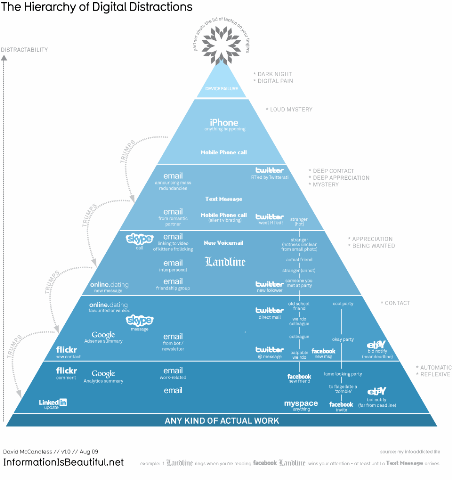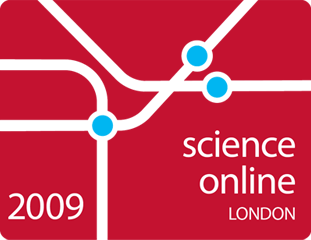Alternative talk styles
October 12th, 2009 by joseI went to a toastmasters meeting, and found some interesting tricks to improve presentations. For example, they count the "ahhs", "hmm" etc. Since then I’m surprised at how many scientific talks are filled with those. A minor thing, but very effective. I didn’t keep going to meetings because it looked to me that the presentation style they use is not very compatible with the academic one (e.g., practicing improvisation). But it got me thinking… what alternative talk styles are out there? Is the ‘standard’ one the best? In a way, flying people all around the world to ‘see’ the talk is a bit of a lost cause, because body language doesn’t weight as much as in other communication styles. Of course, the networking and face-to-face time, to work on ideas on napkins, may make up for it, but still…
What follows is a walk through alternative talk styles that you may want to try in your next conference. Some require you to be the organizer, and enforce certain rules. Others, you can try just being the speaker. On with the show!
Pecha Kucha is a presentation format in which content can be easily, efficiently and informally shown, usually at a public event designed for that purpose. Under the format, a presenter shows 20 images for 20 seconds apiece, for a total time of 6 minutes, 40 seconds. They took the name Pecha Kucha from a Japanese term for the sound of conversation ("chit-chat"). It was being aimed primarily at creative industries professionals.
A Lightning Talk is a short presentation given at a conference or similar forum. Unlike other presentations, lightning talks last only a few minutes and several will usually be delivered in a single period by different speakers. This has actually being already adopted by academics (I’ve been to one!) and in my experience, it’s adored by the audience and well attended.
Ignite is a style of presentation where participants are given five minutes to speak on a subject accompanied by 20 slides. Each slide is displayed for 15 seconds, and slides are automatically advanced.
Last we have the TED talk. The motto of TED is ‘Ideas worth spreading’. If you are an academic, you should ask yourself, ‘is any of my ideas worth spreading?’. So if someone invited you to give a TED talk, what would you talk about? What if you make your next invited talk a TED-like talk?
Feel free to report your experiences with alternative talk styles in the comments…

 queue). We proposed this method
queue). We proposed this method 